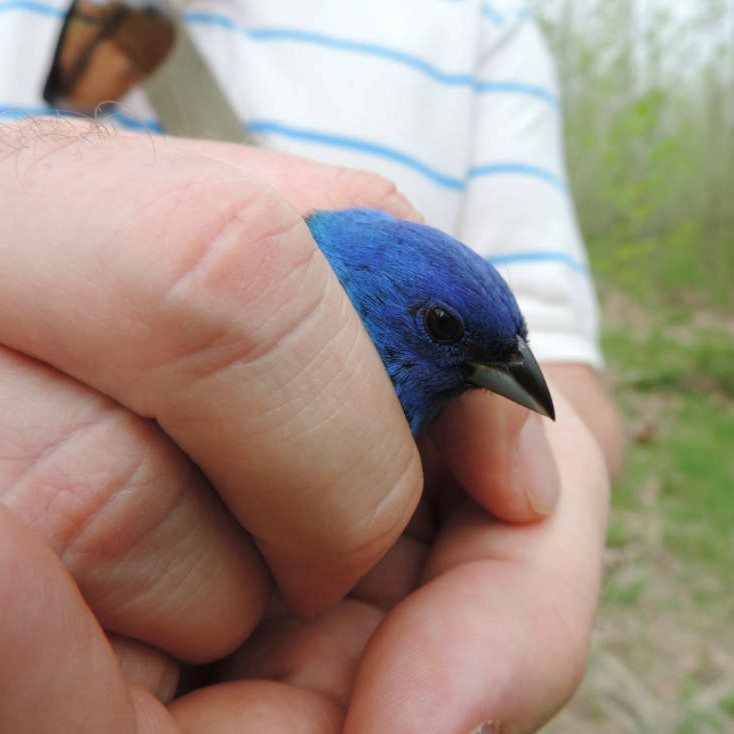Contact
University of Arkansas
AR Forest Resources Center
2301 S. University Avenue
Little Rock, AR 72204

Wildlife Careers
Many are interested in pursuing a professional wildlife career, whether as a biologist, manager, naturalist, enforcement officer, or educator. If you enjoy the outdoors, are enamored with wild animals, and work well with people, you already have the basics of what it takes to become a wildlife professional.
Are you sure a wildlife career is for you? Becoming a wildlife professional is more than just hunting. If you are between 9 and 19 years old, one way to find out is by participating in Arkansas 4-H Wildlife Habitat Education Program (WHEP) or other 4-H wildlife programs.
***More about WHEP - It's a national program developed by wildlife professionals, which can give prospective students a better understanding of this career choice. Even if you decide not to become a wildlife professional, skills and knowledge gained from WHEP will transfer to your science class, as well as applying wildlife practices to land you own in the future. Not to mention it's fun! ***
You can achieve your dream-job as a wildlife professional with planning, dedication, passion, persistence, and hard work. Typically employers have numerous candidates to consider for entry-level positions. Practically all wildlife careers require a Bachelor of Science degree. Several Arkansas universities which offer wildlife-related degrees are listed below. But just having a degree still may not be enough to set you on a career path.
Volunteer. Make yourself known to wildlife professionals by volunteering whenever possible. Examples are helping with clean-up days at state parks, setting up a display at a visitor center or county fair about wildlife, be a Stream Team member, assist wildlife biologists with research projects, and participate in 4-H wildlife events. Keep a record for your resume!
Take an internship. Successful students take advantage of internships while in college. An internship such as with the Arkansas Game and Fish Commission can help narrow your interest within the broad field of wildlife, and help develop an area of expertise. Networking with wildlife professionals is very important! Internships help you build a reputation of excellence which no employer could refuse! T
Get involved. The Wildlife Society is an international organization of wildlife professionals which offers opportunities for networking and advancement for those seeking careers. College students should join The Wildlife Society and a student chapter if there is one at your university, or charter one yourself. Participate in the state chapter to meet wildlife professionals and learn about ongoing projects in the state.
Certification - Learn about the requirements for becoming Certified Wildlife Biologist through The Wildlife Society, and make sure your classes line up! You can become an Associate Wildlife Biologist upon graduation with a little planning. It's an attention-getter on your resume.
Once completing your degree, where can you find a job?
- Arkansas Game and Fish Commission (or other state wildlife agencies)
- USDA Forest Service
- USDA Natural Resources Conservation Service
- U.S. Fish and Wildlife Service
- U.S. Military
- U.S. Geological Survey
- Universities
- Non-profit organizations such as The Nature Conservancy, Ducks Unlimited, Quail Forever, The National Turkey Federation, and Quality Deer Management Association
- Timber Industry
- Private Landowners with upscale Guide Services, Hunting Clubs
Check out jobs listed at The Wildlife Society to learn about opportunities and salary scales. Sometimes a graduate degree may be required for your dream-job. Have a plan and start the journey!
Arkansas Institutions Offering Wildlife-Related Degrees
University of Arkansas - MonticelloThe College of Forestry, Agriculture and Natural Resources offers Bachelor of Science in Natural Resources Management with options for wildlife management and conservation, forestry, geospatial science, communications in natural resources, and environmental science. Also offered is a Bachelor of Science in Land Surveying, Associate of Applied Science in Forest Technology, and Associate of Science in Land Surveying Technology. Graduate degrees are also offered. |
Arkansas Tech UniversityLocated in Russellville, this program offers Bachelor and Master of Science degrees in Fisheries and Wildlife Sciences. |
Arkansas State UniversityOffers Bachelor of Science degree in Wildlife, FIsheries and Conservation in the Department of Biological Sciences. Check their Online Program Portal for additional information. |
University of Arkansas - Little RockOffers Bachelor of Science degree in Biology or graduate degree with an emphasis in wildlife science. |
University of Arkansas - Fayetteville & Cooperative Research UnitFaculty in the Arkansas Cooperative Fish and Wildlife Research Unit on the University campus mentor and teach graduate students who conduct wildlife projects. |
Harding UniversityLocated in Searcy, Harding University offers a Bachelor of Science degree with an emphasis in wildlife. |
Learn More
- The Wildlife Society, "The Next Generation" information
- Becoming A Wildlife Professional (book) - available through The Wildlife Society
- Wildlife Biologist Career - The Balance website
- Careers with the Arkansas Game and Fish Commission - Wildlife Management Division (brochure)
- Becoming a Game Warden - Arkansas Game and Fish Commission